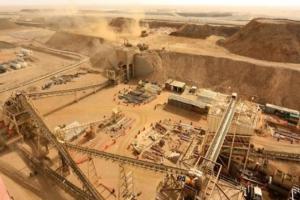
The Mauritanian government has adopted, in recent years, several legal measures to limit the presence of foreign workers in operating companies in Mauritania, under the notion of “Mauritanization” of jobs. The law governing the field sets the authorized percentage of foreign workers, for each operator, at less than 3%, to promote the recruitment of Mauritanian labor within companies working in the extractive industries sector.
This law aims to ensure the maximum impact of the exploitation of natural resources on the national economy, as well as the development of skills and the qualification of the workforce, especially in the industrial sector. An ambitious legal provision, but difficult to put in place, especially because of the requirement of certification of companies and workers, according to the international standards in force in the industrial field. Over the past ten years, the law on “Mauritanization” has caused a disagreement between the state and the two companies TASIAST and MCM, which operate respectively in the gold and copper sectors. While companies prefer the recruitment of international experts in key positions in the production chain, the state considers that Mauritanians meet the criteria but that they only lack experience.
Thus, they should be hired with foreigners to ensure an easy and smooth transfer of skills in order, for them, to be permanently recruited to positions likely to be “Mauritanized”. In 2016, the government and TASIAST signed a “Mauritanization plan” to nationalize 80% of expatriate positions by 2020, through intensive training and professional supervision to develop the necessary knowledge and experience required for these positions.
This “Mauritanization” strategy must be put in advance again, in the negotiations which are currently taking place between the government and TASIAST, concerning the improvement of the current agreement and the signing of a new deal for the exploitation of the Temaya mine, located in the same area. The implementation of these measures in the mining sector should help prepare the ground for integrating national skills into hydrocarbon exploitation operations and renewable energy projects that are shaping the future of the market in Mauritania.




